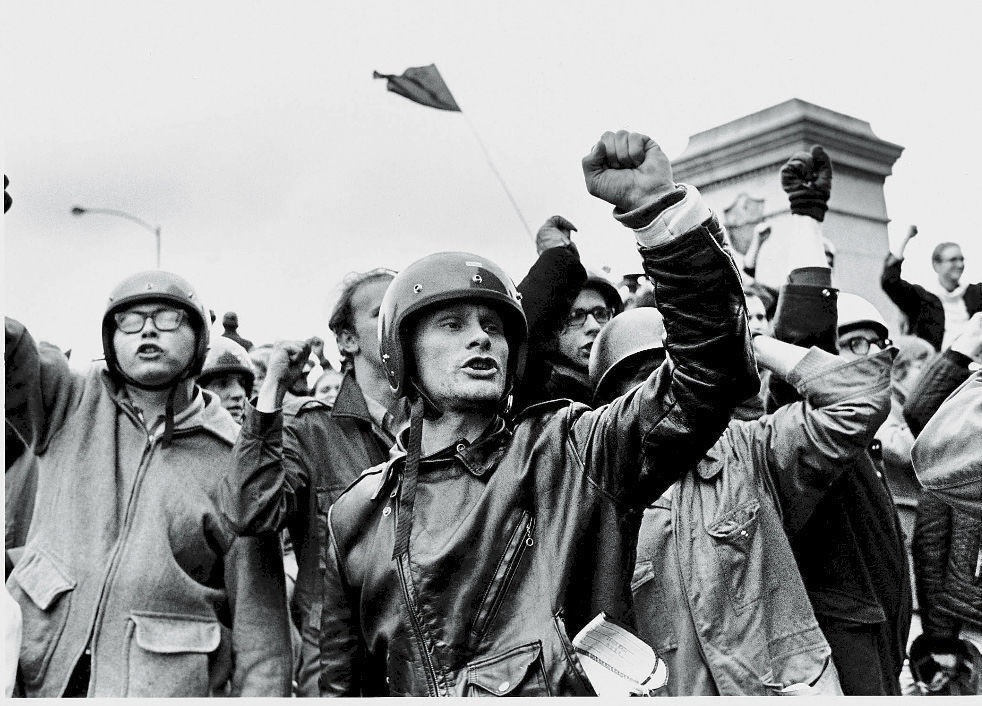A new DEI office at the Air Force Academy seeks to “transform” cadets.
Beyond Counter-Revolution

Opponents of wokeness must do more than simply react to it.
As Daniel Mahoney correctly notes and Christopher Rufo demonstrates in his new book, we do face today a serious challenge from those various activist ideologies that have come to be grouped together and summarized by the word “woke”: The pressures—or at least the headlines—have been most dramatic in the area of educational institutions. But, as both Rufo and Mahoney make clear, they are scarcely limited to this sphere. Indeed, they are evident in the transformation of many parts of our culture, from the legal profession and the law courts through to the investment strategies of financial corporations. And the national narrative of the United States, along with the broader narrative of the West, has been recast as one of oppression and depredation rather than liberty and achievement.
The question of what to do in such circumstances is obviously pressing and cannot even be sketched in the barest outline in a short response. I would suggest, however, that there are number of issues of which any response needs to take account. First, at the risk of using Marxist terminology, we must beware of indulging in reification. The danger is that if we identify “wokeism” as a single coherent unity, we may face artificial dilemmas that blind us to the faults of our own chosen side. It is clear, for example, that race and racial conflict has been and is a powerful force within American society. This is not to say that we must therefore address the issue using the categories of critical race theory. Far from it. But it is to say that we cannot pretend the issue does not exist. To do that would, ironically, be to concede ground to the advocates of CRT: we would, in effect, be allowing that theirs are the only categories by which one can address the matter and, as their categories are wrong, the problem does not really exist. We also then end up dismissing as “woke” anybody who raises any critical questions about matters such as race, gender, sex, and class; and that runs the risk of making us as ideologically driven and impervious to correction as those we criticize.
Second, in the field of education we do need to avoid allowing politics to drive our curricula and our teaching. Of course, the obvious response is that it is too late: once one side politicizes something, all sides are required to treat it as political. Another response might be that education has always been political, though once again that carries with it the unfortunate concession that critical theorists are actually correct and that human life is characterized in its very essence by political struggle and power games.
It is, of course, truly hard to see at this point how we might move beyond the impasse that the explicit politicization of education involves. Yet if we cannot even hypothetically allow that education might somehow be pre-political, we are again doomed to the polarities that are currently serving only to raise the temperature of debate rather than move us all to a constructive conclusion.
Of course, there is a difference between tactics and strategy. It may well be that the moment demands tactics which mirror those of the opposition. But we need to be careful that short-term tactical accommodations do not solidify into a long-term strategy that rests upon damaging philosophical commitments with regard to pedagogy.
None of the above is to say that either Rufo or Mahoney are advocating for these things against which I am warning. Far from it. It is rather to issue a more general caveat that the demands of the immediate battles should not be given, whether by intention or be accident, more substantive and long-term normativity than necessary. It is good to rise to meet an opponent. But sooner or later one must also rise above that opponent, arriving at a philosophy that is defined by more than mere opposition.
The American Mind presents a range of perspectives. Views are writers’ own and do not necessarily represent those of The Claremont Institute.
The American Mind is a publication of the Claremont Institute, a non-profit 501(c)(3) organization, dedicated to restoring the principles of the American Founding to their rightful, preeminent authority in our national life. Interested in supporting our work? Gifts to the Claremont Institute are tax-deductible.
An anti-woke manifesto.


